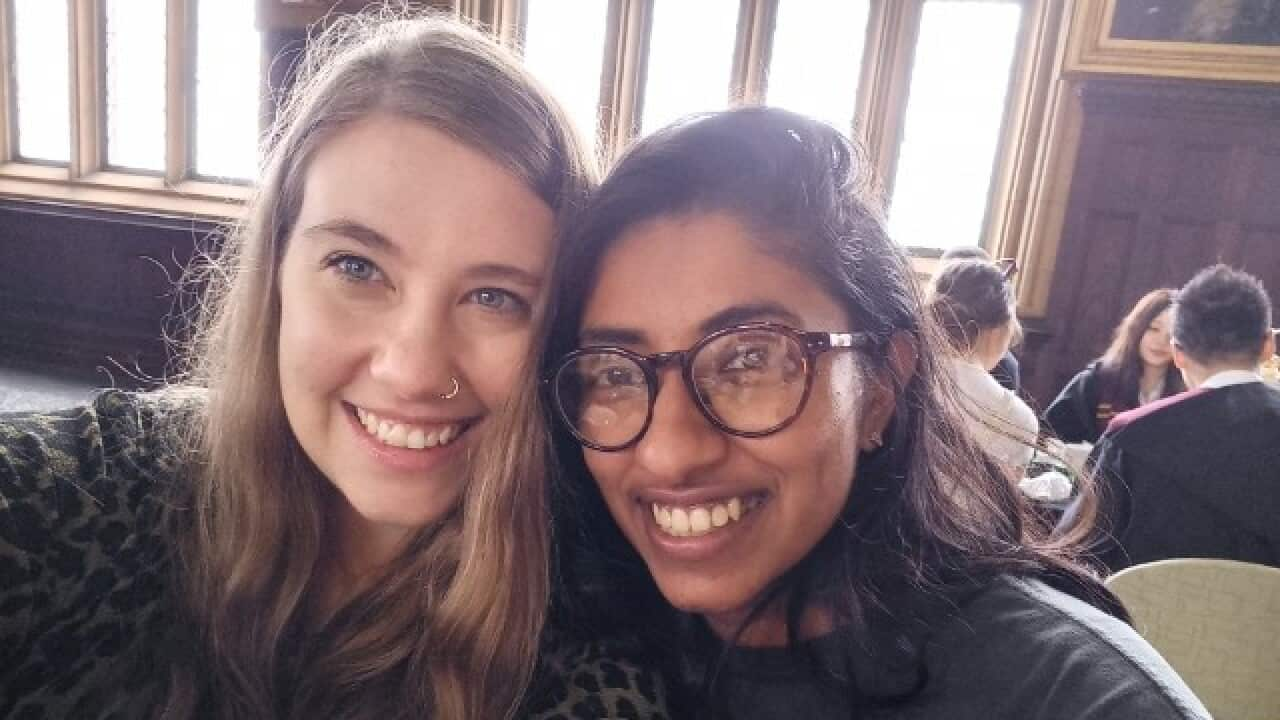When Petra’s father, Brad moved in with her and her fiancé, Mahi, Petra had reservations about how it might affect her relationship. Being in a cross-cultural, same-sex partnership, there were already enough external stressors placed on the couple.
“My relationship with Mahi is my top priority, I suppose,” Petra said.
But living with in-laws was nothing new or unexpected for Mahi, who is of Indian background. Having grown up in a multi-generational household, Mahi lived with her grandparents throughout her life.
“My parents also lived in households with their aunts and uncles and cousins and grandparents, so it's not out of the ordinary for my family to live with in-laws,” Mahi said.
Counselling psychologist, Dr Catriona Davis-McCabe, said that once the in-laws are involved, the relationship is no longer about two people.
“The very nature of marrying into a family means that there's three people involved, one of whom is newer to the equation. With that addition of the new person, it's a period of adjustment for everybody,” Dr Davis-McCabe said.
Petra is a First Nations woman, while Mahi is South Indian Tamil. They hope to get married next April in a way that pays tribute to both of their cultures. In addition to a Hindu wedding ceremony, they plan to have a Welcome to Country and a smoking ceremony, an ancient Aboriginal custom performed for celebration, healing and bringing people together.
Despite their families coming together for the wedding, it was a slow process for Petra to be accepted by her in-laws.
“Mahi’s family are pretty conservative, so it took a long time for them to want to engage with us,” Petra said.

Petra with her dad, Brad
“It depends on the acceptance and on the in-law family's opinions or thoughts on people from that community…Sometimes same-sex couples are unfortunately in a situation where the family just does not approve. Having to maintain a relationship with all these external conflicts happening can cause a lot of arguments in the relationship and a lot of hurt,” Dr Davis-McCabe said.
When Petra and Mahi first starting dating, Mahi’s family weren’t aware of the relationship. They were busy trying to arrange a heterosexual marriage for her.
“They had been going on all of the [matrimonial] websites and trying to find someone for me, which had been a point of conflict in my relationship with my parents. They were looking for grooms, [using] specific filters that you identify as being important to you.”
When she eventually came out to her family as bisexual, Mahi said her parents were apprehensive.
“I think one of the biggest things for my family was, ‘how are other people going to react and is that going to make your life harder?’ They also had all of these visions of how my life would be…But now knowing that we are going to get married and that we do plan on having kids, those kinds of fears are relieved for them.”
Despite coming from two apparently very different ethnic backgrounds, Petra said their cultures share more similarities than differences.
“I think we both end up prioritising family and making sacrifices for family. That's just so much a part of my culture and so much a part of Mahi’s culture,” Petra said.

Petra and Mali after getting engaged.
Despite these similarities, Mahi’s family’s unfamiliarity with the intergenerational trauma within Petra’s family was difficult to navigate.
“I think Mahi’s parents were a little bit freaked out, because my family is very much affected by intergenerational trauma, and sometimes a lot of dysfunction bubbles to the surface,” Petra said.
She also felt that that Mahi’s family struggled to reconcile the difference in their socioeconomic backgrounds.
Brad moved in with his daughter and daughter-in-law because as a single man with complex mental health issues, it was too expensive for him to live alone.
“He’s on Jobseeker which doesn’t cover anything, so this was our only option financially,” Petra said.
“Having different experiences growing up, Mahi had more money than my family, my family didn't have much money. Reconciling that was a bigger deal than cultural differences.”
However, once the families met, they immediately bonded over their love for art and music.
Brad was in a Sydney punk band in the 70s, while Mahi’s father is a classical South Indian musician.
“They both love learning about each other's kind of music because they both just love to talk music, it doesn't really matter what it is,” Petra said.










